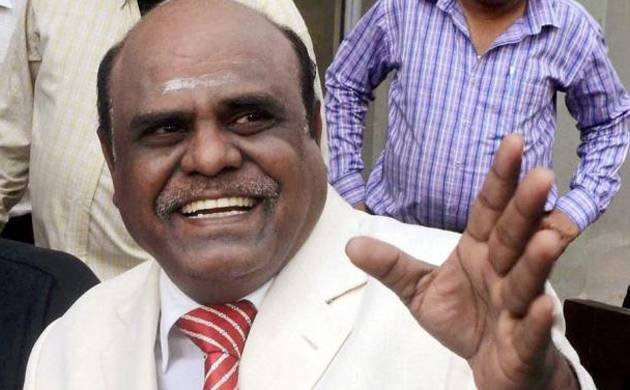The Cyber cell of Chennai Police recently booked former High Court Judge CS Karnan under Sections 153 and 509 for a video in which he alleged that some judges of the Supreme Court and the High Court “sexually assaulted women court staff and women judges”. In the video, Karnan had also named the alleged victims.
Karnan was charged under provisions of the Information Technology Act, 2000, the Tamil Nadu Prohibition of Harassment of Woman Act, 1998 and under three sections of the Indian Penal Code.
The Cyber Crime Branch has booked the case against retired Justice Karnan after 10 women lawyers from the Bar of Madras High Court wrote to the Chief Justice of India against him. In the response to this letter, the apex court asked the advocates to approach the appropriate authorities. The lawyers in the Bar of Madras High Court had requested Chief Justice of India SA Bobde to intervene in the case and stop the circulation of the controversial video which names the victims of the alleged sexual harassment.
In the letter, the lawyers wrote that the video and its contents are outrageous, reprehensible and constitute offences under the Tamil Nadu Prohibition of Harassment of Women Act, 1998, section 66A of the Information and Technology Act, 2000 and Sections 292,354 A and 506 of the IPC. The letter further pointed out that the worst part was naming the alleged victims, an act prohibited by law, a fact that a judge like Karnan should have surely known.
Justice Karnan was involved in many other controversies in the past. In 2011, he had caused a huge controversy when he called a press conference in Chennai to accuse one of his fellow judges of caste discrimination. Justice Karnan had alleged that the fellow judge had ‘deliberately’ touched him with his foot as he was a Dalit. In 2013, Justice Karnan had passed an order that led to a new read down in the law. In a controversial judgment, Justice Karnan ruled that if a man deserts a woman after pre-marital sex with a promise to marry her, the woman could claim the social status of that man’s wife provided the man is single and above 21 years of age and the woman is an adult and not married. Justice Karnan had also ruled that the promise of marriage for pre-marital sex would be considered as marriage.
In 2015, he had accused another judge of sexually harassing an intern in his chamber. Justice Karnan, though had never provided any material to substantiate his allegations. In the same year, he had initiated a suo moto contempt case against the then Chief Justice of Madras High Court Sanjay Kishan Kaul. In that case, Justice Karnan had accused Justice Kaul of harassing him for being a Dalit. He had further alleged that he was given ‘insignificant and dummy’ portfolios in the Madras High Court by Justice Kaul. Later, the Supreme Court had stayed the contempt proceedings.
In another incident, Justice Karnan had stormed into a courtroom in the Madras High Court hearing a case of judicial appointment. Justice Karnan had then demanded that he be allowed to hear the case. He became the first High Court judge in India to be jailed for contempt of court while in office. He was arrested by the Kolkata police and was sentenced to a jail term of six months for contempt of court in 2017 by the Supreme Court.
Karnan had also spoken out in support of advocate Prashant Bhushan and called the contempt proceedings against him unconstitutional. Bhushan with charged with a case of contempt by the Supreme Court over his tweets on Chief Justice SA Bobde. In August 2020, Karnan had stated that the case against Bhushan was wrong. Karnan had referred to articles 14 and 19 in the context of Bhushan. Article 14 of the Indian Constitution provides the fundamental right to equality before the law. Article 19(1) provides for the right to freedom of speech and expression. Therefore, Karnan, had added that there was nothing wrong in what Prashant Bhushan wrote about Chief Justice SA Bobde.
It still remains to be seen how far the water flows for Retd. Judge CS Karnan in the recent case filed by the Chennai cyber cell.
The author is a student member of Amity Centre of Happiness.





